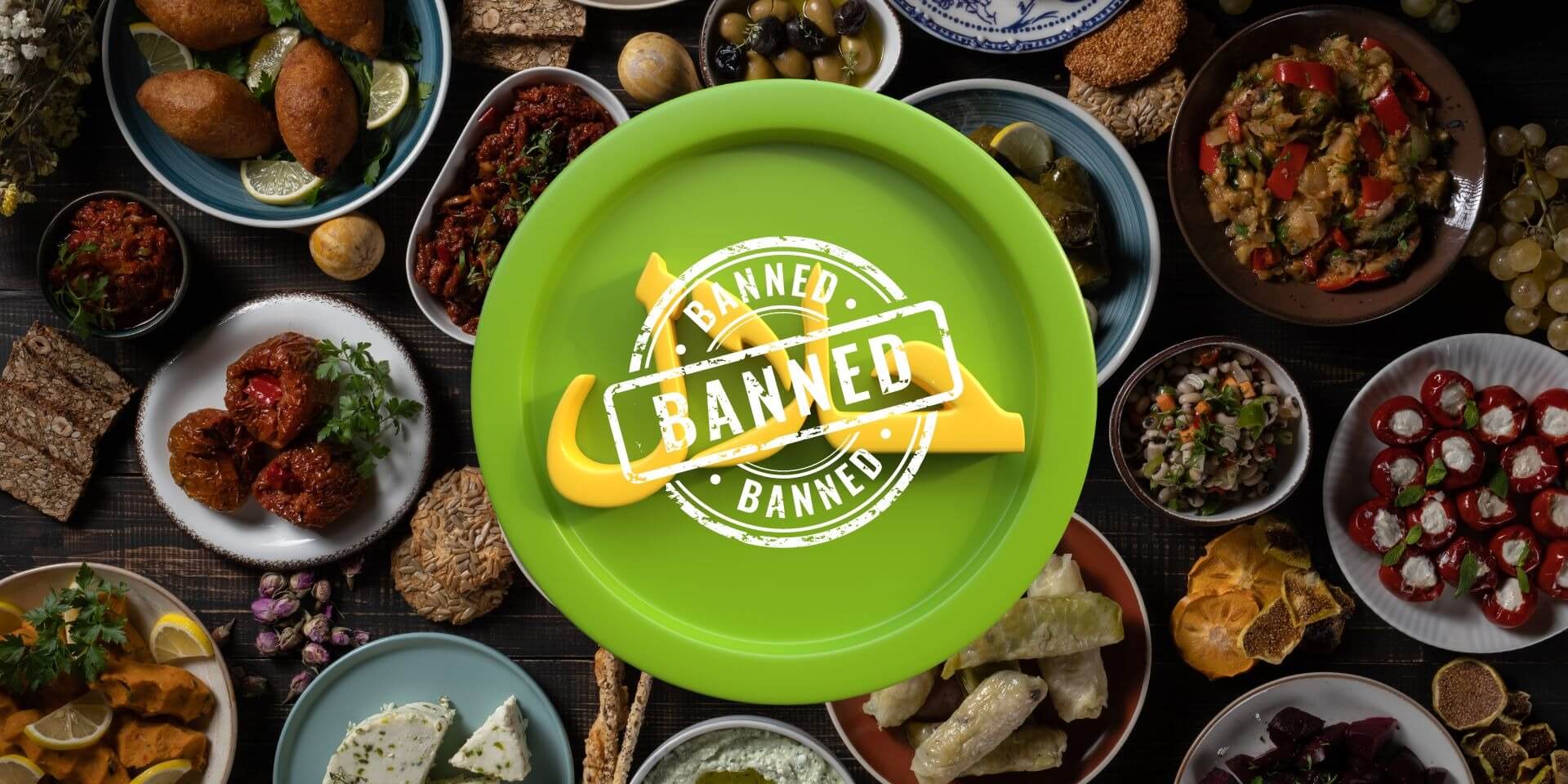
Uttar Pradesh bans halal-certified products. How do India's religious bodies see it?
Prominent Muslim organizations in India have decried the decision to ban the storage and sale of halal-certified products in the state of Uttar Pradesh, denouncing it 'absurd' and 'unfortunate.'
Religious bodies have also forewarned of the ban's potential impact on exports to Muslim nations.
The Jamiat Ulama-i-Hind Halal Trust, the halal certification unit of Jamiat Ulama-i-Hind, claimed that the government had not sent 'any notice or circular before the move'. The ban infringes upon citizens' fundamental right to consume food in accordance with their faith, it added.
Jamiat Ulama-i-Hind, established in 1919, is a eminent socio-religious organisation of Indian Muslims.
“The Uttar Pradesh government’s action is evidently based on prejudice against the Muslim community and Islam, irrational, and against friendly and social goodwill,” said Mohammad Salim Engineer, vice president of Jamaat-e-Islami Hind.
Earlier this month, Uttar Pradesh banned the production, storage, distribution, and sale of products, carrying a halal certification, with immediate effect. The ban exempts meat and products meant for export.
Uttar Pradesh is India’s most populous state, ruled by the Hindu nationalist Bharatiya Janata Party.
The ban follows a police complaint filed by a member of the Bharatiya Janata Yuva Morcha (BJYM), blaming prominent halal certifying organizations in the country of certifying products as halal to boost sales among Muslims.
The complaint targeted prominent organizations such as Halal India Private Limited Chennai, Jamiat Ulama-i-Hind Halal Trust Delhi, Halal Council of India Mumbai, and Jamiat Ulama Maharashtra. It alleged that these organizations were exploiting religious sentiments of consumers for financial gains.
In response, the Jamiat Ulama-i-Hind Halal Trust dismissed the allegations as 'baseless' and an attempt to tarnish the image of halal in India.
Speaking to Salaam Gateway, Niaz A. Farooqui, CEO of Jamiat Ulama-i-Hind Halal Trust, underscored the global significance of halal-certified products, and emphasized their positive impact on India's role in exports and tourism, constituting a $3.5 trillion industry.
“These baseless allegations could harm India's standing in the Muslim world,” he said, adding that the certification, serves not only as a mandatory requirement for many importing countries but also aids tourists visiting India in making informed product choices.
Refuting claims that halal certification favors only one community, Farooqui highlighted that many non-Muslim-run companies also use halal certificates. He argued that certification is a matter of choice for individuals and manufacturers, ensuring the availability of need-based products in the market, and stressed on the importance of recognizing global standards in halal commerce.
"We abide by government regulations, as highlighted in the Ministry of Commerce and Industry notification, which mandates that all halal certification bodies must be registered with NABCB (National Accreditation Board for Certification Bodies under the Quality Council of India). This is a significant milestone that the Jamiat Ulama-i-Hind Halal Trust has successfully attained," stated Farooqui.
All their financial transactions were meticulously recorded, accompanied by appropriate GST and income tax payments, and subject to thorough auditing, Farooqui added. “This meticulous approach ensures absolute legality and transparency in our operations.”
Mohamed Jinna, CEO of Halal India Private Limited, states that halal certification not only upholds religious principles but harbors significant potential in positioning Indian products that meet international food standards in the global market.
"Halal products appeal to a broader consumer base, supporting our country's economy and promoting a sustainable food industry."
He also clarified that contrary to what has been alleged in the complaint and in sections of the news media, halal-certifying bodies do not run a parallel food quality certifying system. 'That's the role of the Food Safety and Standards Authority of India (FSSAI). Our role is to look into the products and verify whether the products and their source are halal or not halal,' he added.
He further mentioned that most of the products his company certifies as halal are for the export market.
